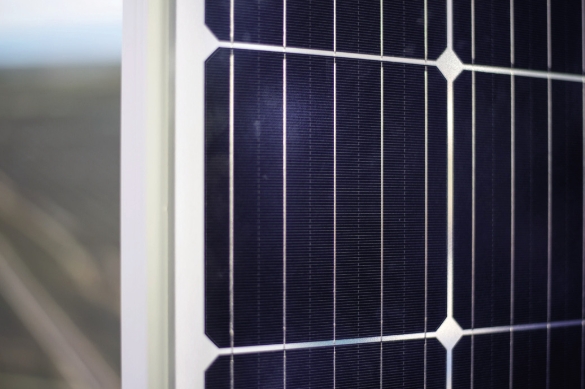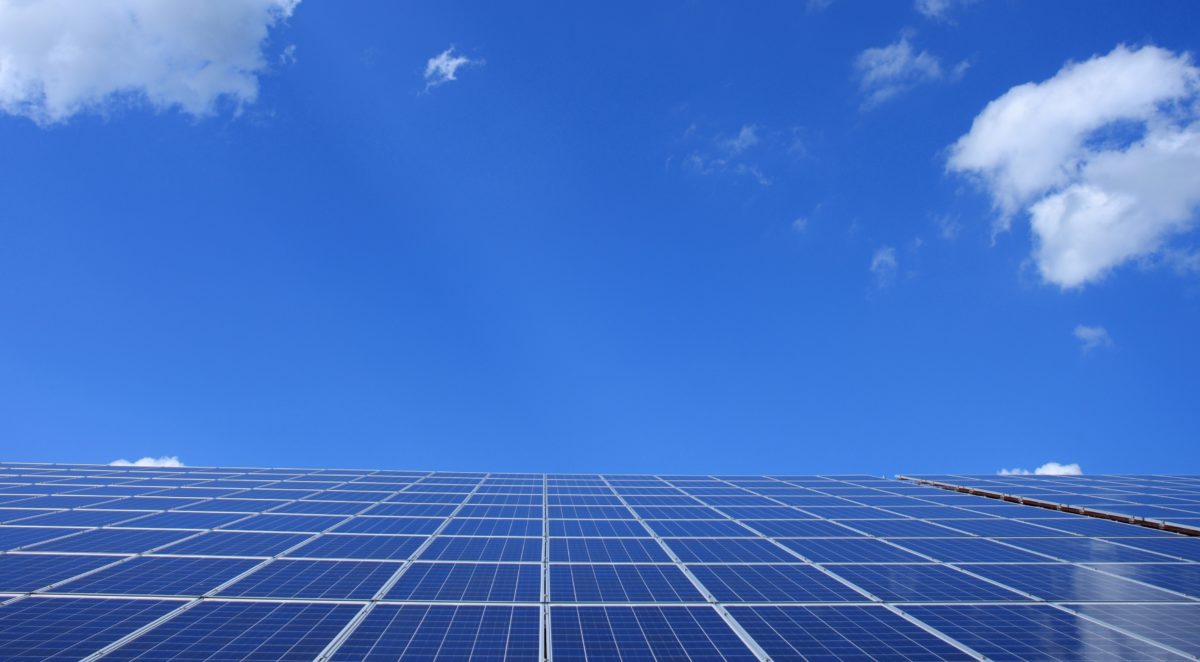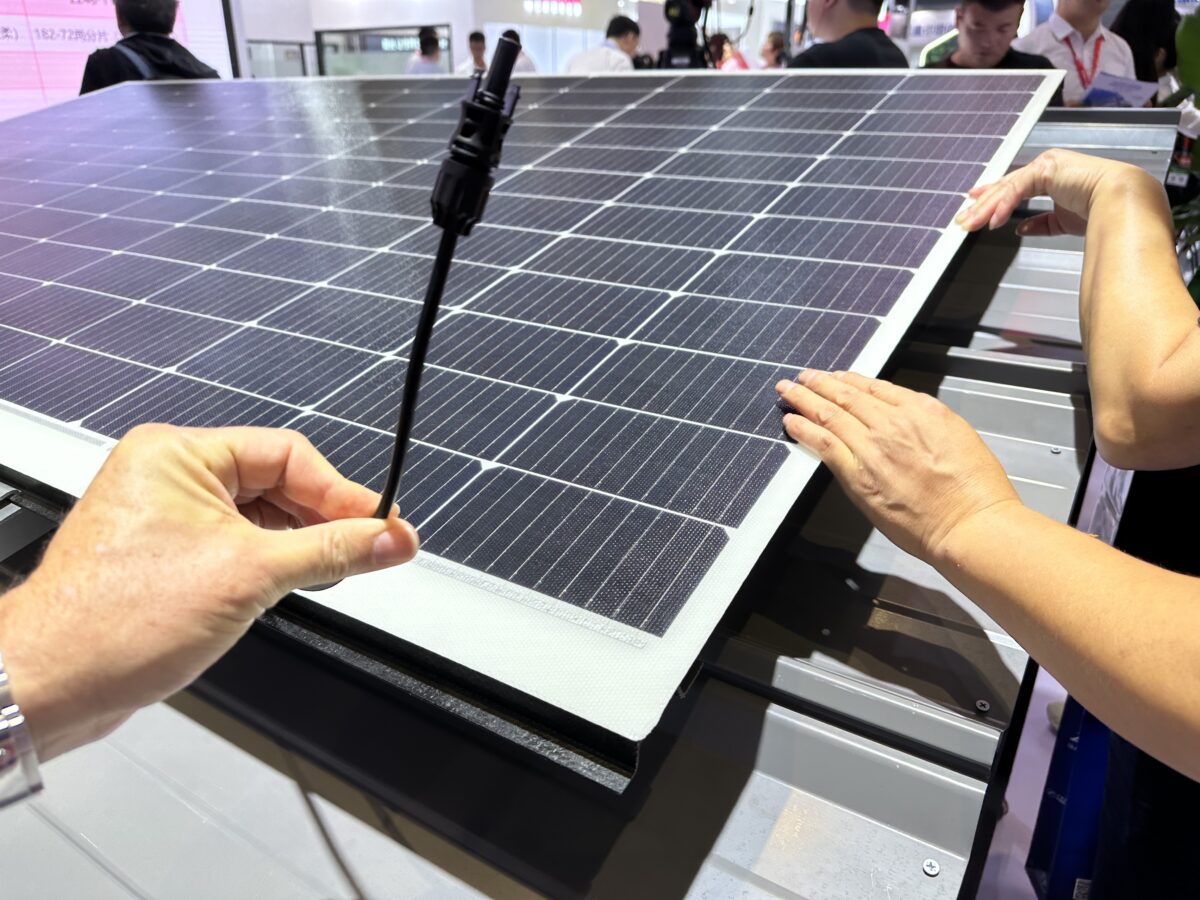Serious differences over China and the Nord Stream-2 Russia to Germany natural gas pipeline are expected to be high on the agenda as President Joe Biden hosts outgoing German Chancellor Angela Merkel for what's expected to be her last visit as head of state to the White House on Thursday. She steps down this fall after long ago affirming she wouldn't seek a fifth term in 2021, and since becoming chancellor has made 23 official visits to Washington. The two sides are hoping to mend deeply strained relations ahead of Germany's election in ten weeks.
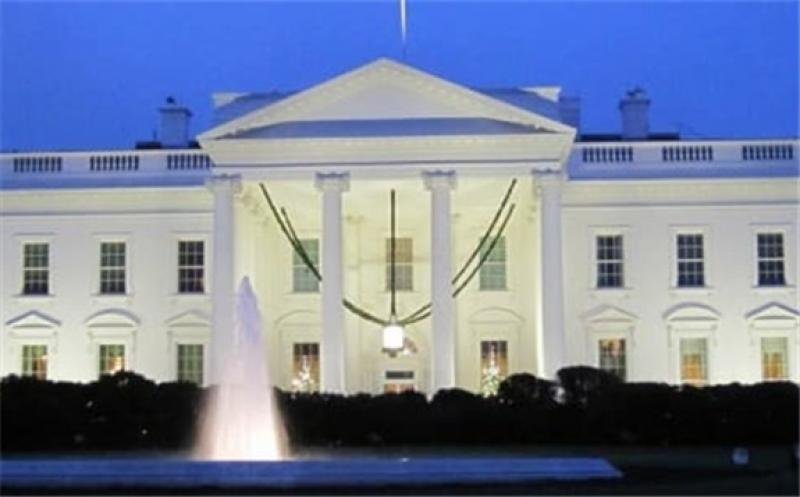
Two main points of contention going back into the Trump administration which have soured relations on an unprecedented scale between Berlin and Washington have remained Germany's more 'open' and cooperative relationship with China as well as Nord Stream-2, the latter for which Germany and European companies have come under prior US sanctions, but which Biden reversed for the main German company overseeing its side of the project, now said to be over 95% complete.
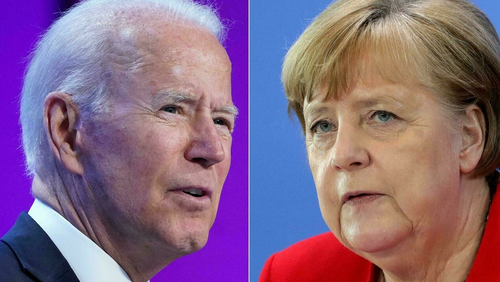
Congressional hawks have lately criticized Biden for getting "soft" on the NS2 pipeline, essentially 'greenlighting' it for completion to the benefit of Russia and the detriment of Ukraine. Despite the prior firm US stance that the project should be halted, including via coercive and punitive measures, it now seems the working assumption on the part of the administration is that its completion is inevitable.
According to a preview of the Biden-Merkel White House meeting in CNN:
Biden will raise his "long-standing concerns" over Nord Stream 2 with Merkel, including his desire to ensure it isn't used for coercive purposes against Ukraine, according to one official.
Instead, officials believe Biden's decision earlier this year to waive congressional sanctions on Germany has allowed "diplomatic space" for talks between the two sides, even if no resolution on the thorny issue has been found.
So it appears Thursday is all about "making assurances" so that each side can save political face - not just on Russia-Ukraine and the NS2 controversy, but on the deeply divergent approaches to China.
CNN further cited a Council on Foreign Relations analyst and senior fellow, Matthias Matthijs, to say it's "clear" that Germany "wants to move ahead with the pipeline and wants to reassure the US that this won't give (President Vladimir) Putin's Russia the opportunity to blackmail the EU."
"The Germans are hoping to get the basic go-ahead on (Nord Stream 2), a commitment from the US that it can increase its exports of Liquefied Natural Gas to Europe, and will want to avoid to get drawn into a new Cold War with China, where Berlin has its own commercial interests," Matthijs added.
The first foreign leader to visit the White House was in April, when Japanese Prime Minister Yoshihide Suga met with Biden and the two issued a joint statement highlighting a united front against China expansive claims in the South China Sea. Merkel will be the first European leader to visit the White House in what's been a very slow pace of hosting foreign leaders since Biden entered office.
Earlier in the day Merkel met with Vice President Kamala Harris at the Naval Observatory...
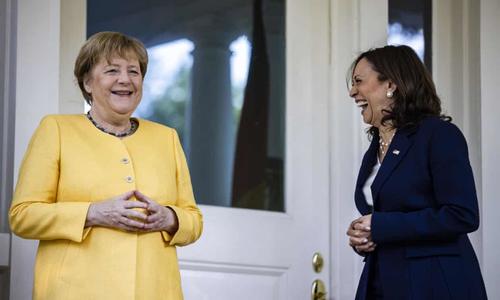 Image source: UPI/Rex/Shutterstock
Image source: UPI/Rex/Shutterstock
Biden is expected to "convey gratitude" for her years of leadership in Europe and the world as Chancellor of Germany, hence Thursday's meeting is also largely symbolic and as a farewell visit of sorts, despite the White House emphasizing her brief tour is a "working" visit.

